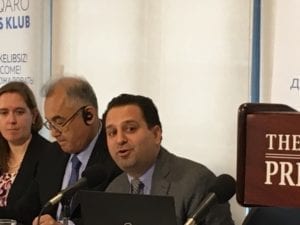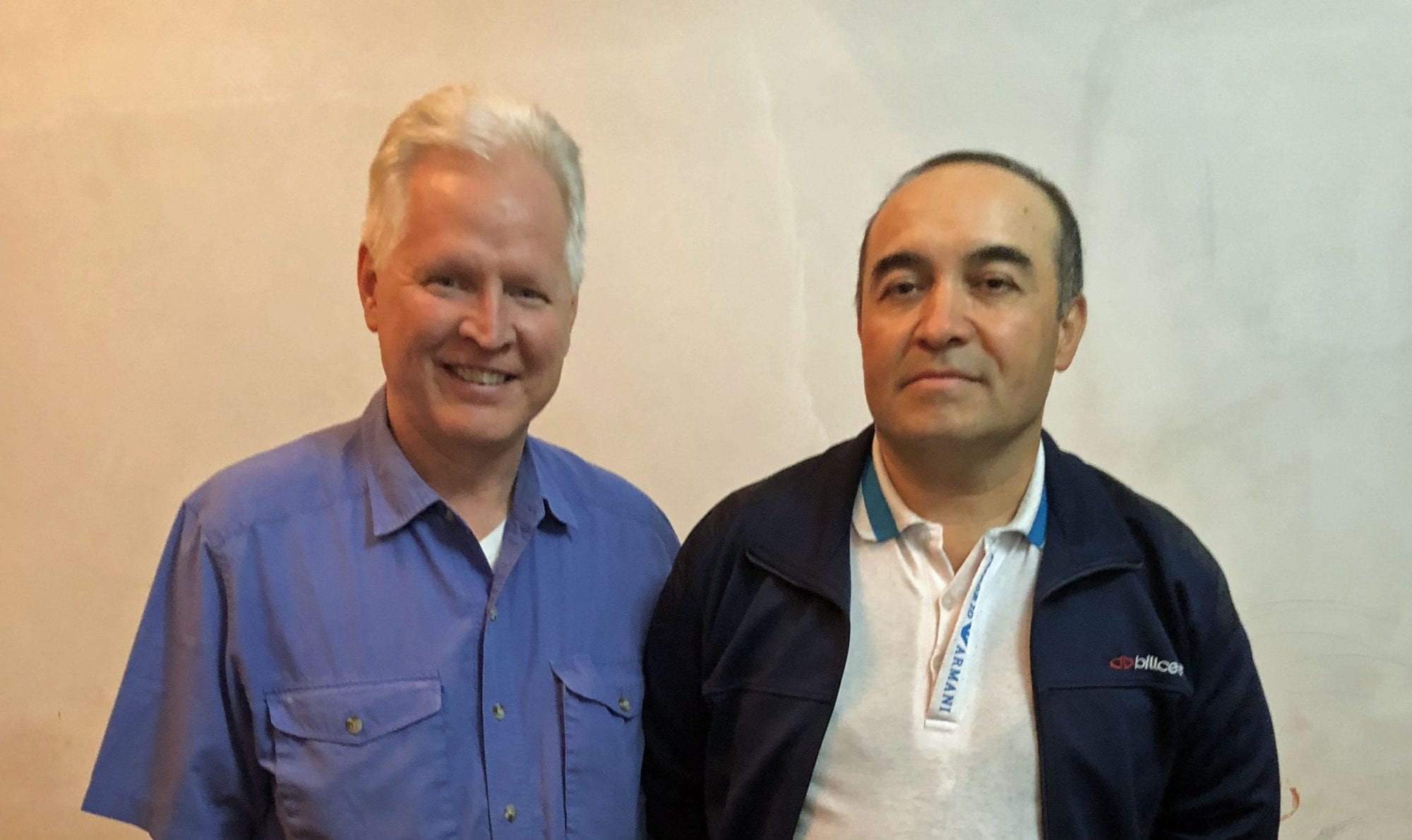Uzbek union activist Fakhriddin Tillayev, in prison on a 10-year sentence and subjected to torture for attempting to organize an independent union for day laborers, was released over the weekend.
Tillayev’s release was among the results sought by a Cotton Campaign delegation, now in Tashkent, Uzbekistan’s capital, for unprecedented meetings with government officials, civil society advocates and human rights monitors to discuss the eradication of forced labor. During last fall’s harvest, the Uzbek government forced 336,000 people—including teachers, doctors and students—to work in the country’s cotton fields, picking a crop that generates nearly a quarter of the nation’s GDP, according to an International Labor Organization (ILO) survey. The Cotton Campaign believes the number of those forced to labor is higher.
Tillayev’s release “is a very positive step by the government,” says Solidarity Center Europe and Central Asia Regional Program Director Rudy Porter, who met with Tillayev after his release. Human Rights Watch, the Uzbek-German Forum for Human Rights, Cotton Campaign staff and the Solidarity Center all followed Tillayev’s case closely since his sentencing in 2014 and raised demands for his release in each meeting with the government.
Tillayev and his fellow activist, Nuriddin Jumaniyazov, were falsely accused of human trafficking, tortured and convicted in proceedings that violated fair trial standards. Jumaniyazov, who was sentenced to six years on the same charges as Tillayev, died in prison of complications related to diabetes in December 2016, information that was not made public until June 2017.
Tillayev said he and Jumaniyazov were arrested after they collected membership applications for an independent union from many people looking for day labor at eight markets in Tashkent.
“They had no other work, they needed protection, they needed their own union. The Administrative Court fined each of us 7 million Soum [$875] because we organized an independent union. They banned the independent union. And then they came up with a criminal offense to put us away for good.”
Seeking a Formal Plan to Dismantle State-Sponsored Forced Labor
Cotton Campaign coalition representatives are in Uzbekistan seeking legal and policy reforms to end the mobilization of education and healthcare workers to harvest cotton. They also are calling for an to end the practice of forcing those who refuse to go to the fields to pay for replacement workers.
The delegation seeks a formal plan to dismantle the forced labor system, and an accountability mechanism that allows for secure complaints and legal actions against officials who mobilize citizens. The Cotton Campaign delegation does not include forced labor monitors and will not assess Uzbekistan’s progress toward eliminating forced and child labor in cotton production.

Steve Swerdlow from Human Rights Watch says “one of the biggest developments in Uzbekistan has been the release of political prisoners.” Credit: Solidarity Center/Tula Connell
The Cotton Campaign sees these meetings as among “recent encouraging signs that the Uzbek government is willing to talk about the subject of forced labor.” Last week, the government released journalists imprisoned on political grounds.
Noting that Uzbekistan has released 28 political prisoners in the past 20 months, Steve Swerdlow, Human Rights Watch Central Asia researcher, says “one of the biggest developments in Uzbekistan has been the release of political prisoners.” Swerdlow spoke May 14 as part of an Uzbekistan-sponsored press conference in Washington, D.C., to discuss its progress on human rights and prospects for improvement.
Uzbek President Shavkat Mirziyoyev acknowledged forced labor in cotton production in a speech at the United Nations in September, the first time a high-ranking Uzbek government official had done so in a public forum. Mirziyoyev again repudiated forced labor in April when he referenced teachers being mobilized for street cleaning and other “public works.” With its partners in the Cotton Campaign, the Solidarity Center advocates for the complete eradication of forced labor and forced child labor in Uzbekistan.

